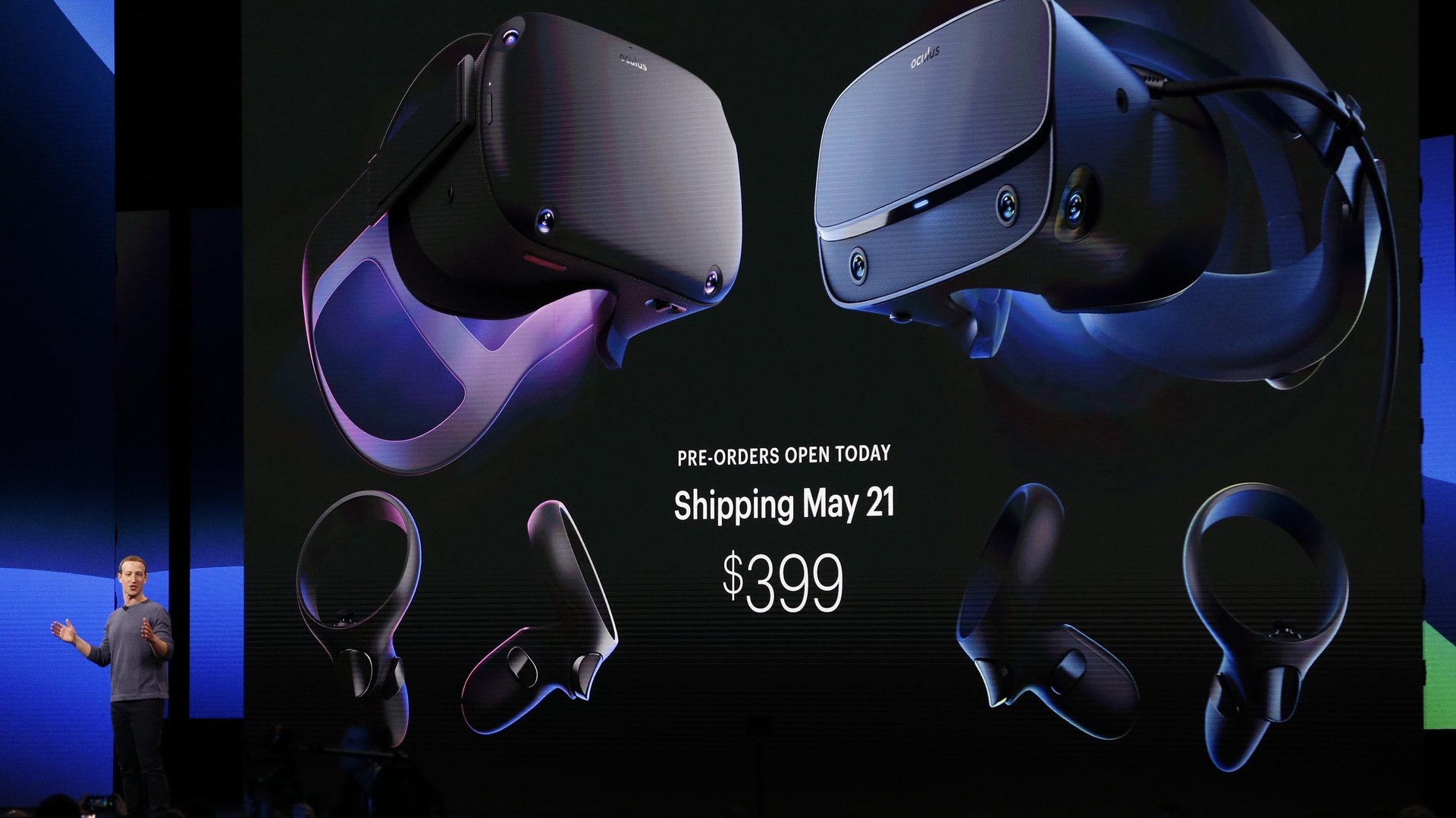Facebook’s VR sales have finally taken off
Facebook is finding a surprising new revenue source, a world away from the scandal-fraught businesses it traditionally relies on.


Facebook is finding a surprising new revenue source, a world away from the scandal-fraught businesses it traditionally relies on.
The company’s non-advertising revenue jumped to $269 million during the third quarter, Facebook noted in its earnings report Oct. 30. That’s a 43% increase year-over-year, and while ad sales still account for 98% of Facebook’s total revenue, the company’s other business lines are growing again. The revenue is coming from strong sales of Oculus Quest, one of Facebook’s VR headsets, of all places.
Indeed, on a quarterly basis, it appears VR sales have helped lift the company’s non-advertising revenue to its previous heights, which had once been supported by virtual currency sales for Facebook games like Farmville and Mafia Wars.
Nielsen’s SuperData Research, a market intelligence provider, estimates Oculus Quest sold 180,000 units (approximately $72 million worth) during the third quarter. In total, Facebook has sold approximately 400,000 units of Oculus Quest so far. Facebook’s Oculus Quest and Oculus Rift S headsets have been on sale since May 21—both cost $399.
Despite the promising sales, an analyst on Facebook’s earnings call noted that the company’s VR strategy “has taken a bit longer than expected to materialize.” Facebook introduced its first VR product, the original Oculus Rift, in 2015—it went on sale in early 2016.
Zuckerberg acknowledged the slow start. “On VR and AR, you’re right,” he said. “This is taking a bit longer than we thought. And I’m still optimistic. I think that the long-term vision and the reasons why I thought this was going to be important and big are unchanged.”
Facebook’s CEO added that “the future might be a few years further out” and “it might be more expensive to develop because we’ll be funding this for a bit longer until it gets there.” However, he said, Facebook is “not a company that’s traditionally done hardware or built operating systems or these kind[s] of products.” In a sense, if it takes longer for AR and VR to go mainstream, that would give Facebook a chance to hone its products.
“Quest is growing and doing quite well,” said Zuckerberg. “We’re selling them as fast as we can make them, the demand has been strong and the content is starting to pick up both on the … really high-quality side and some of the indie stuff that I think is quite good.”
He’s right—in addition to popular early games like Beat Saber and I Expect You to Die, the Star Wars series on Oculus looks especially thrilling. And it coincides with rising enthusiasm for the next installment in the movie series, The Rise of Skywalker. In just three weeks, Oculus players will be able to duel with Darth Vader himself. Episode III of Vader Immortal arrives Nov. 21.